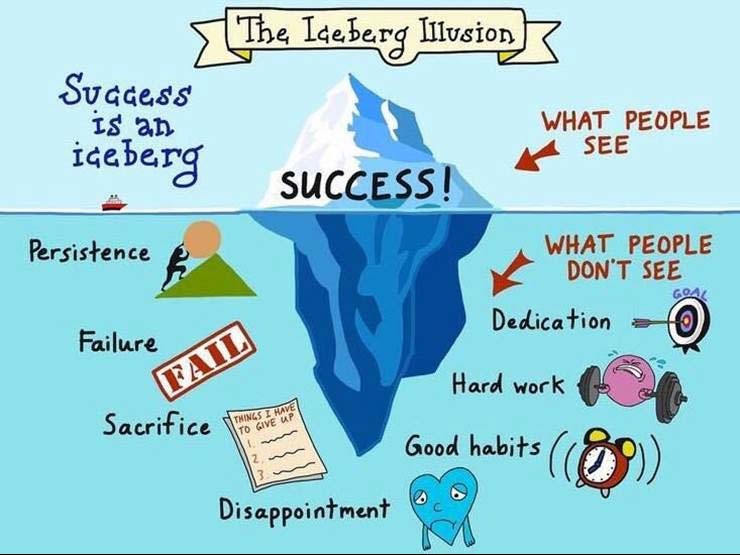Creating a successful, lasting business as an entrepreneur takes hard work, persistence and self-accountability.
No one’s going to hold your hand and walk you to success. If you want success, you must be willing to work hard . Before starting a business, consider these statistics.
According to the US Small Business Administration , less than half of all new businesses survive their first 5 years and only one in three businesses make it past 10 years. Don’t let that stat deter you from starting a business. By following our steps you will drastically improve your chance of success.

Failure:
Be willing to fail. That’s part of the game. Sometimes you must know when it is time to cut your losses and move on. Success is never met without failures, but they do not always have to be your own. Reading books, taking courses, and learning from a mentor will allow you to minimize mistakes.
Passion:
Starting a business you are passionate about allows you to push forward regardless of the obstacles thrown in your way. If you are not truly passionate about the business you are starting then you will ultimately end up burned out and back where you started. Perseverance is one of the few things that will guarantee success.

Consistency:
Approaching your work in a calculated, efficient way and striving to be consistent ensures you are taking the necessary steps towards success. You should work on your business every day and should be consistently trying to improve it. If you are always a perfectionist with your efforts, you will impede on your ability to learn and improve. By being consistent regardless of the obstacles thrown in your way; you will notice daily improvements that lead up to big changes. The road to success is never paved without failures, but by consistently pushing forward you will end up at success.

Initial Investment:
The start-up capital required to fund your business will differ slightly depending on the business you are starting but most businesses have the same initial costs . Your opening costs will include a business license, state fees, permits, website development, business cards and other marketing services. Once the initial fees have been paid, you will officially be in business.
Risk Management:
Jumping right into a business unprepared will rarely result in success. Before beginning your business, you should take advantage of the resources available to you and learn essential skills like email marketing, SEO, and social media. Use the knowledge you’ve acquired working your job and leverage the contacts you’ve made to your advantage. Then Implement what your job did correctly and minimize what they did incorrectly.
You should build your business on the side until you’ve reached a point where you need to focus solely on your business. When it’s time to transition from working under someone else to working only for yourself, you should make sure you have a nest egg to fall back on. If you have good credit or connections to an angel investor, you can finance your business on someone else’s dollar and pay them interest on the principle.
Target Market:
Who exactly are you trying to sell your product or service to? Being as specific as possible helps you fully understand your potential customers’ needs, wants, and problems. Knowing your target market helps you understand the best way to reach your potential customers. Do your clients visit Facebook, Instagram, local meet-ups, or participate in a local chamber of commerce?
Marketing:
How do you plan on reaching your target audience? Are you planning on giving out business flyers announcing the opening of your business, or developing an online strategy? Formulating a proper marketing strategy ensures your efforts are focused on the best approach to reach your clients. Will you be collecting an email marketing list to build brand awareness? Having a way to capture emails ensures you can follow up with visitors that might not be ready to buy. Do you plan on cold calling or sending unsolicited emails? Do you have the budget for paid advertisements, or will you be relying on SEO? Paid advertisements are not cheap, but deliver an almost instant response, while SEO can take weeks to months to see a return.
Goals:
When defining goals you need to be as specific as possible. “Raising capital” isn’t a specific goal, but “raising $15,000 by December 23rd“ is. When setting goals, you want to be optimistic so that when you read it, you are fired up to achieve it. Realistic goals should be set based on your current circumstance and as your situation gets better gradually set the bar a little higher. If you set a goal to earn $100,000 a month and you haven’t even attained that in a year, then you are going to consistently let yourself down.
Consider setting short term goals of about three to four weeks and long-term goals of 3 to 5 years. By writing your goals on a whiteboard you’re able to constantly remind yourself when and what you are trying to achieve. If you cannot go out and get yourself a whiteboard, you can simply take a screenshot of your goals and set that as your lock screen.

Resources:
What assets do you have available to you? Money is a great asset to have, but having talented friends is an even better resource. You can exchange your products and services with friends allowing both of you to reap each other’s rewards without expending money. Friends care about your overall success, while employees only care about getting paid. By utilizing your network of friends you’ll be assisting each other’s growth. Great businesses are built with teams and not individuals. A business can only be built so far without a great support system.
Honesty:
Being honest begins with yourself and then trickles down to the rest of your employees. How can you expect to be honest with other people, if you are not being honest with yourself? If you are not being honest with yourself then you are less likely to be honest with your employees. When employers are honest with employees, the employees develop trust, credibility and are retained longer than employers who are not. Lastly, you need to be honest with your customers, so that you develop a better business-consumer relationship, encourage customers to come back, and they’ll be more willing to provide feedback. Customers who have positive experience provide free word-of-mouth advertising about your brand.

Just reading these tips alone won’t earn you success, but gathering every bit of information before beginning your entrepreneurial venture will help minimize mistakes. The information you gained needs to be applied, so go out and start your business. Learn from it and grow as an entrepreneur.
For Marketing Services to help start your business, visit www.overnightprints.com/marketing.
Article contributed by Anthony Cafone, social media specialist at OvernightPrints.com.







